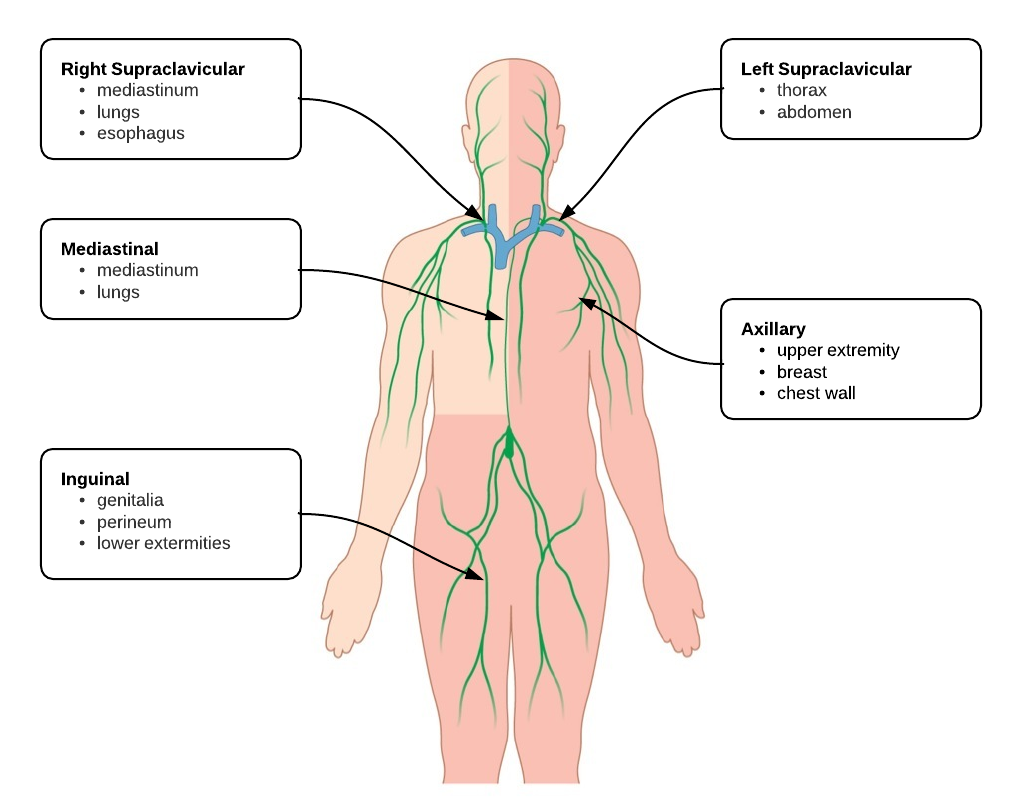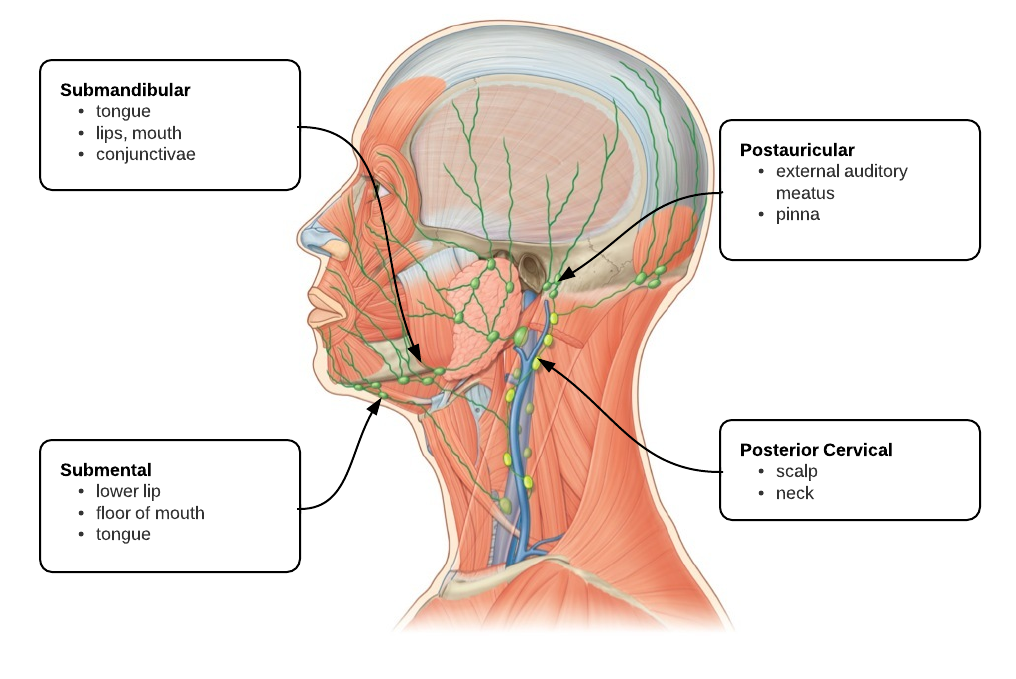32 year-old male, previously healthy, with slowly-progressive right and left cervical lymphadenopathy over the past three years. He first noted the development of a mass on the lateral neck below the ear three years ago. This mass was non-tender and remained stable at approximately the size of a marble for nearly one year. He later developed more and larger masses, but never experienced any constitutional symptoms like fevers, night sweats, fatigue or weight loss. Examination reveals a healthy, well-nourished male with multiple, hard, mobile, non-tender right posterior cervical and submandibular lymph nodes and a large left supraclavicular lymph node, protruding above the clavicle and measuring ~4x3cm.
Imaging:
He has undergone several diagnostic procedures during this time including aspirations and core biopsies with inconclusive pathology and he is currently admitted for an excisional biopsy of the supraclavicular lymph node. Infectious and rheumatologic workup has remained negative including: HIV, bartonella, Quantiferon TB Gold, cocci, histo, toxo, CMV, EBV, ANA, RF, ACE.
The patient tolerated the excisional biopsy without complication and was discharged. Preliminary pathology suggests Castleman’s disease.
Lymph nodes and their drainage: 1,2
Evaluation of Lymphadenopathy: 2,3,4
References:
- Ferrer R. Lymphadenopathy: differential diagnosis and evaluation. Am Fam Physician. 1998;58(6):1313–1320.
- Henry PH, Longo DL. Chapter 59. Enlargement of Lymph Nodes and Spleen. In: Longo DL, Fauci AS, Kasper DL, Hauser SL, Jameson J, Loscalzo J. eds. Harrison’s Principles of Internal Medicine, 18e. New York: McGraw-Hill; 2012.
- Armitage JO. Chapter 171. Approach to the Patient With Lymphadenopathy and Splenomegaly In: Cecil, Russell L., Lee Goldman, and Andrew I. Schafer. Goldman’s Cecil medicine. Philadelphia: Elsevier/Saunders, 2011.
- Motyckova G, Steensma DP. Why does my patient have lymphadenopathy or splenomegaly? Hematol. Oncol. Clin. North Am. 2012;26(2):395–408– ix. doi:10.1016/j.hoc.2012.02.005.








Pingback: Differential Diagnosis of Sore Throat
Pingback: Differential Diagnosis of Lymphadenopathy Applied - Lymphoma
Pingback: Differential Diagnosis of Kawasaki Disease